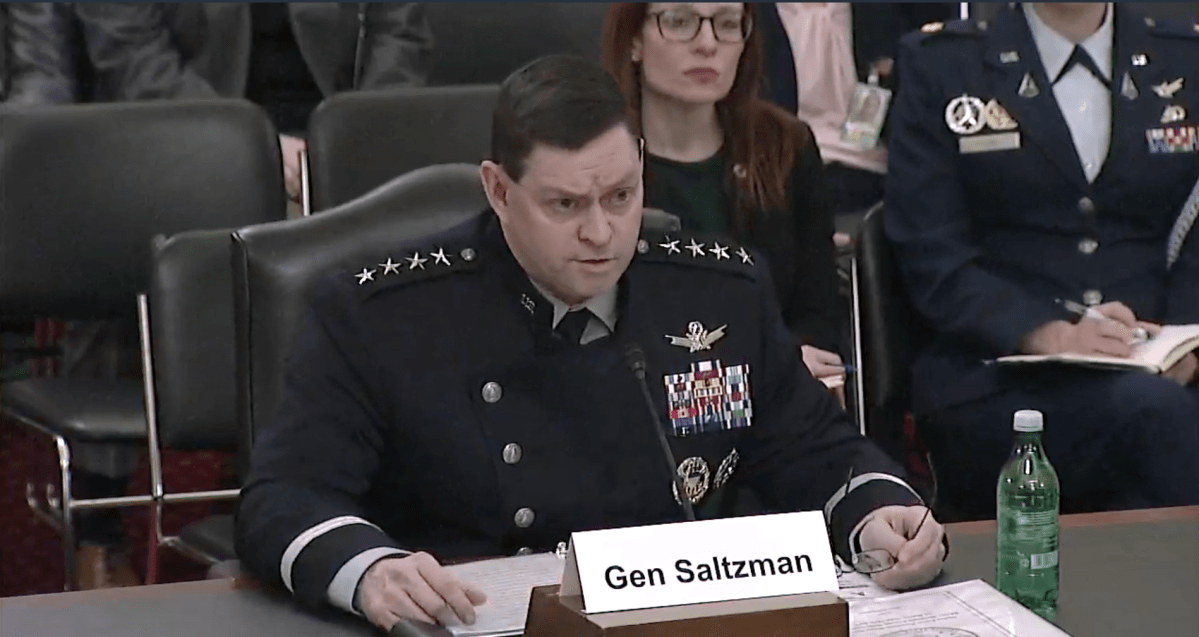In the coming weeks, Congress will be receiving testimony from the Space Force explaining and advocating for their budget proposal for fiscal year 2025. The recently passed fiscal year 2024 appropriations bill handed the Space Force an approximate 5% decrease from its requested topline.
This is sure to be programmatically significant in a fiscal year that has gotten to a tremendously late start and comprises about 3.5% of the overall Department of Defense budget.
To put this in context, the overall defense appropriations took an approximate 3% cut from the President’s budget request. The Air Force similarly took an approximate 2% cut from the requested amount.
The more alarming figure is that the request for fiscal year 2025 is asking for the same amount of money that was just appropriated. Given downward pressure on the overall defense budget in accordance with the Fiscal Responsibility Act and persistent inflation, which is estimated at 3.2%, the real effects of budget stagnation for the Space Force can be estimated at 8-9%, a considerably more deleterious number.
So, what can the Space Force do to position itself better for the upcoming fiscal year 2025 cycle?
Resource tough choices
The Space Force was created with the recognition that space capabilities have an asymmetric advantage on the tactical battlefield. Small numbers of systems deliver disproportionately large advantages to our entire joint force and provide the foundation for global security. As Space Force was being established, there was skepticism about its potential efficacy given its small size. But it won over advocates by arguing that its small size mirrors the asymmetric advantages it brings to the warfighters.
The belief was that a smaller force could extend its asymmetric advantages into acquisition agility, making more efficient use of the limited resources it was given, while amplifying private investment found in emerging commercial companies.
With the imminent downward budget pressure that the Space Force is likely to experience, it needs to more clearly articulate how it is resourcing tough choices to be more efficient in the use of its dollars. Given that the rationale for a significant number of these cuts was to programmatic management, execution, or acquisition strategy, it appears that Congress agrees.
Another part of this equation is predicated on acknowledging programmatic risks as the Space Force evolves its requirements and architectures to outpace our strategic competitors in this domain. Space Force’s mission areas are at an inflection point in transitioning to different architectural constructs to increase resilience and commercial participation. Meanwhile, the existing systems and programs of record are still being pursued at the same predictable pace.
With a shrinking defense topline keeping both of these acquisition pathways stable and funded is untenable and will inevitably lead to mission degradation.
The Space Force must start to consider holding contractors accountable for not delivering on-cost and on-schedule. And in an immensely unpopular opinion – it must start to divest itself of established underperforming programs of record and relook at how to leverage commercial products and services for areas where it has consistently been unable to meet requirements — notably in space software, command and control, space domain awareness, and emerging capability areas like space mobility and logistics.
Redefine Space Force
The Chief of Space Operations recently released his theory on competitive endurance, and it is a well-reasoned operational hypothesis for where the force needs to grow towards. But to achieve it will require the entire joint force to more fully recognize that space is not just a supporting function for long-range kill web disruption.
Instead, space superiority is both a requisite for power projection terrestrially, while concurrently ensuring a rules-based international order develops in the space domain that extends to cislunar space and beyond.
In its short time of existence Space Force continues to reckon with the reality that it is being asked to split its focus (and subsequently resources) between a terrestrially-focused national security mission set while also shaping a celestially-focused rules-based order, as Russia and China seek to shape the future operating environment.
While recognizing that every department, service and agency is going to be asked to do more with less, the literal expanse of responsibility for the Space Force is galactic with less than 3.5% over the overall defense budget. This reinforces the need to make drastic resourcing prioritization choices in the upcoming budgetary cycles, while aggressively leveraging commercial products and services to offset costs and share programmatic risks with private industry that see economic benefit in the emerging space economy.
Mission areas ripe for Space Force investment are those that asymmetrically advance the Space Force’s missions including command and control, space domain awareness, space mobility and logistics, and downstream capabilities like space defense.
Tough budget year
The Space Force took a tangible decrease to its budget in the fiscal year 2024 budget cycle and it is poised to encounter another challenging budget year.
‘But it has a compelling authentically lived narrative on how to amplify and extend its limited resources to support the entire joint force. That alone will not be sufficient for it to succeed in its theory of competitive endurance. In the upcoming budget cycles it needs to align its words with its actions and follow through on making tough choices — or Congress might make those choices for it.
Sarah Mineiro is a former staff director of the House Armed Services strategic forces subcommittee, focused on space, missile defense, hypersonics, directed energy, and nuclear weapons. She is now an investor, entrepreneur and owns an advisory company.
